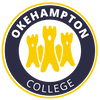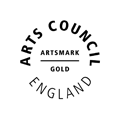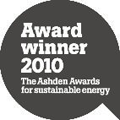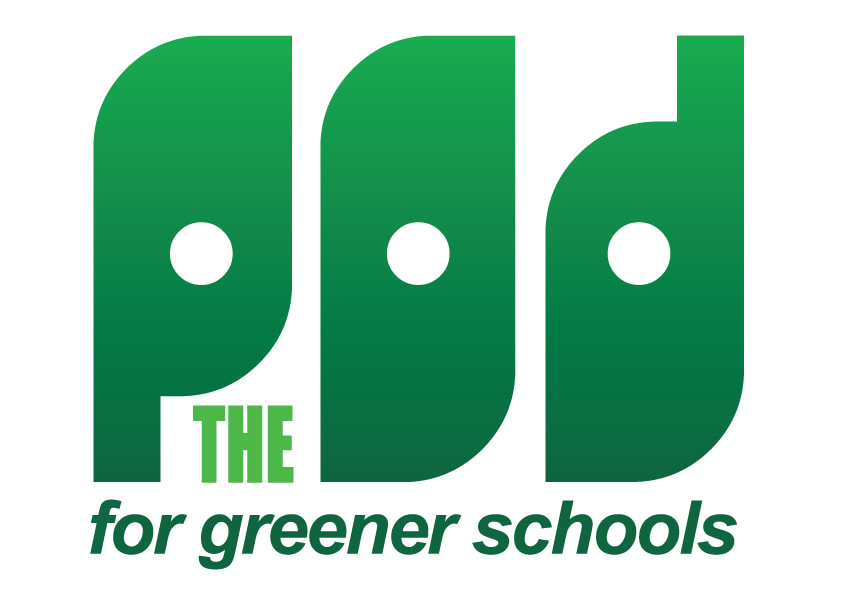Beliefs and Values
Vision:
“We teach you how to think, not what to think”
The BV team at Okehampton College are passionate about inspiring students to become critical thinkers and preparing them to be global citizens of the twenty first century. In an ever increasing global society pupils are encouraged to master the skills and knowledge to be a success in all cultures and environments. Pupils are encouraged to reflect individually on their own ideas and ways of living when exploring numerous worldviews, ethical issues and philosophical enquiry. To investigate what people believe and what difference this makes to how they live, enables students to gain the knowledge, understanding and skills needed to handle the questions raised by religion. Ultimately, students at Okehampton College will learn the importance of living in a society in which people understand and respect the beliefs and values of others.
“We teach you how to think, not what to think”
The BV team at Okehampton College are passionate about inspiring students to become critical thinkers and preparing them to be global citizens of the twenty first century. In an ever increasing global society pupils are encouraged to master the skills and knowledge to be a success in all cultures and environments. Pupils are encouraged to reflect individually on their own ideas and ways of living when exploring numerous worldviews, ethical issues and philosophical enquiry. To investigate what people believe and what difference this makes to how they live, enables students to gain the knowledge, understanding and skills needed to handle the questions raised by religion. Ultimately, students at Okehampton College will learn the importance of living in a society in which people understand and respect the beliefs and values of others.
Intent:
The Beliefs and Values curriculum at Key stage 3-4 is designed to introduce students to a balance of disciplines which contain units of work on philosophy, theology and ethical issues. It also recognises a balance of Dharmic and Abrahamic religions as well as non religious world views. We recognise the importance of rigorous and relevant content, which can help students acquire a better understanding of the role that different religions and cultures play in today’s pluralistic world. Adopting a thematic approach to our schemes of work allows students to apply, compare and contrast some of the world’s major beliefs, religious and secular, to some of the ‘Big Issues’ we are faced on a day to day basis. Differentiated lessons and safe space within the classroom allow students to explore these issues and develop tolerance and respect for the communities in which we live. Fundamental to their understanding is their religious literacy, which is developed through structured key term and spelling tests, regular reading aloud and wider reading opportunities (particularly at Key Stage 4 and 5). Throughout all the Key Stages, Beliefs and Values provides students with the opportunity to debate and discuss thereby improving their ability to articulate verbally as well as enabling them to develop their extended writing skills. It also provides the students with an opportunity to reflect on their own personal views. The curriculum in Key Stage 3 supplies students with an initial understanding of the multicultural society in which we live and the key skills in which to discover more about the world and their individual place within this. We aim to develop the student’s substantive knowledge of belief and practice, to explain how this is applied in people’s lives and to evaluate and show empathy towards the different beliefs in today’s society. Progression is embedded in the curriculum through effective differentiation of resources and questioning, verbal and written marking and feedback, and challenge for all. As students’ progress into Key Stage 4 and Key Stage 5, they are given the opportunity to explore these bigger questions on a deeper level through the study of Philosophy and Ethics, sharpening critical thinking alongside developing a student’s ability to think and theorise through issues themselves; skills which are imperative to development later in life. . What is learnt in our classrooms can be seen in our Curriculum Overviews, which show the composite aspects of learning per half term, whereas the Curriculum Components detail the outcomes our students will learn.
Resources and routes:
Beliefs and Values is taught by a team of three specialist teachers at KS3 and a team of humanities specialists at KS4 all bringing their own unique contribution to the subject. At KS3 teachers are guided by a curriculum plan that has been produced with guidance from the Devon Agreed Syllabus and at KS4 the compulsory AQA Religious Studies A Christianity and Buddhism course is followed. During lessons teachers allow time for students to actively engage and express themselves in discussion and debate. At both KS3 and KS4 all pupils receive one hour a week of Beliefs and Values. At A’Level we offer two popular options: Philosophy and Ethics (OCR) and Sociology (AQA) where pupils receive 4 hours a week and taught by three specialist teachers.
Beliefs and Values is taught by a team of three specialist teachers at KS3 and a team of humanities specialists at KS4 all bringing their own unique contribution to the subject. At KS3 teachers are guided by a curriculum plan that has been produced with guidance from the Devon Agreed Syllabus and at KS4 the compulsory AQA Religious Studies A Christianity and Buddhism course is followed. During lessons teachers allow time for students to actively engage and express themselves in discussion and debate. At both KS3 and KS4 all pupils receive one hour a week of Beliefs and Values. At A’Level we offer two popular options: Philosophy and Ethics (OCR) and Sociology (AQA) where pupils receive 4 hours a week and taught by three specialist teachers.
Extra-curricular opportunities:
Beliefs and Values is a vibrant subject where pupils benefit from many extra-curricular opportunities. In year 7 pupils partake in a trip to Simmons Park to reflect on their spirituality. In year 8 there is a trip to Exeter Synagogue and Mosque and in year 9 to the local church to learn about Christianity in the local community. Pupils also have the opportunity to go to Poland in year 9 and visit Auschwitz concentration camp to learn about the holocaust which helps prepare them for many topics within the GCSE especially the human rights and social justice unit at GCSE. Year 10 pupils take part in Holocaust Memorial Day.
Beliefs and Values is a vibrant subject where pupils benefit from many extra-curricular opportunities. In year 7 pupils partake in a trip to Simmons Park to reflect on their spirituality. In year 8 there is a trip to Exeter Synagogue and Mosque and in year 9 to the local church to learn about Christianity in the local community. Pupils also have the opportunity to go to Poland in year 9 and visit Auschwitz concentration camp to learn about the holocaust which helps prepare them for many topics within the GCSE especially the human rights and social justice unit at GCSE. Year 10 pupils take part in Holocaust Memorial Day.
Assessment:
In Key Stage 3, students are assessed at the end of each unit, typically four times per year. The assessments take the form of multiple-choice questions alongside some longer exam-style questions. Feedback is highly valued within the Humanities Faculty. Following each assessment, results will be given with a dedicated lesson providing in-depth feedback so that students can reflect, improve their knowledge, skills and confidence in completing assessments. Results of these assessments are sent home to parents/guardians three times per year.
In Key Stage 4, students complete end of unit assessments typically four times per year. These are normally sections of past papers or are teacher-written assessment based on the exam. GCSE students will also sit two ‘mocks’ per year, which are larger papers and are designed to give students the experience of sitting a full paper. Like in Key Stage 3, our feedback lessons are taken very seriously, and students are encouraged to annotate their papers and set targets for improvement.
In Key Stage 3, students are assessed at the end of each unit, typically four times per year. The assessments take the form of multiple-choice questions alongside some longer exam-style questions. Feedback is highly valued within the Humanities Faculty. Following each assessment, results will be given with a dedicated lesson providing in-depth feedback so that students can reflect, improve their knowledge, skills and confidence in completing assessments. Results of these assessments are sent home to parents/guardians three times per year.
In Key Stage 4, students complete end of unit assessments typically four times per year. These are normally sections of past papers or are teacher-written assessment based on the exam. GCSE students will also sit two ‘mocks’ per year, which are larger papers and are designed to give students the experience of sitting a full paper. Like in Key Stage 3, our feedback lessons are taken very seriously, and students are encouraged to annotate their papers and set targets for improvement.
Programme of Study: Key Stage 3
- Year 7: Autumn Term, Beliefs and Concepts, Citizenship – The Island; Spring Term, Rights and Responsibilities through Hinduism and Rights and Responsibilities through Christianity; Summer Term, How do people show their spirituality?
- Year 8: Autumn Term, Religion and Young People; Spring Term, Global Issues - planet earth; Summer Term, Challenging Religious Stereotypes – Islam [Who are Muslims?]; An introduction to Buddhism
- Year 9: Autumn Term, Ultimate Questions - Religion and Science, Introduction to Philosophy of Religion, Spring Term, How should we live? - Introduction to ethics and ethical issues, Summer Term, Ultimate Questions - Life After Death, Alternative Religions.
Programme of Study: Key Stage 4 - Year 10 and 11
GCSE Religious Studies AQA A: The subject is examined by two examinations in year 11. Religion paper - Christian Beliefs, Buddhist Beliefs, Christian Practices and Buddhist Practices. Themes paper - Religion, peace and conflict; Religion, crime and punishment; Religion, human rights and social justice; Relationships and families;
Programme of Study: Key Stage 5
A Level Religious Studies – Philosophy and Ethics
- Philosophy of Religion: Ancient philosophical influences; Arguments about the existence or non-existence of God; The nature and impact of religious experience; The challenge for religious belief of the problem of evil; Ideas about the nature of God; Issues in religious language.
- Religious Ethics: Ethical theories - Situation Ethics, Kant, Natural Law, Utilitarianism, Absolutism and Relativism; Applied Ethics – Euthanasia; Business Ethics; Sexual Ethics; Ethical Language and Thought; Debates surrounding the significant idea of conscience.







